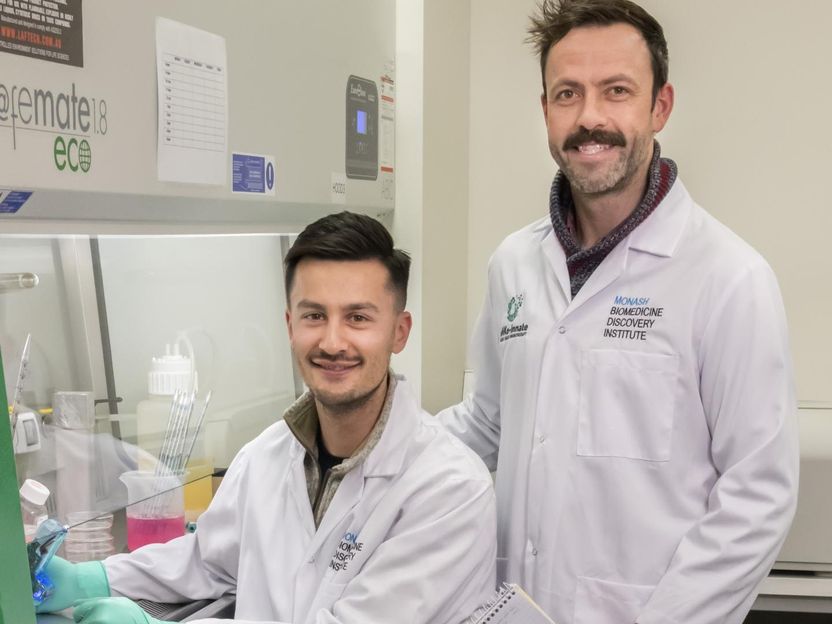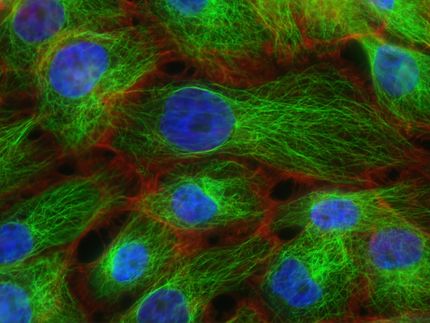Turbocharging the body's natural killer cells to defeat cancer
Natural Killer (NK) cells have long been the soldiers of the immune system that prevents the growth and spread of cancers, and subduing this army of cells is one of the key ways that tumours take hold.

This is Dr. Jai Rautela and Professor Nicholas Huntington.
Monash University
Australian researchers have discovered a protein found in humans that prevents NK cells from doing their job fighting cancer. Importantly the study, published in Science Signaling, reveals that blocking this protein - with a naturally occurring hormone currently commercially available - turbocharges the immune system to fight off the cancer cells.
The discovery, in preclinical models, means this hormone, called Follistatin, may be a new and highly potent immune-therapeutic drug for the eradication of cancers such as melanoma.
In the paper, the research team led by Dr Fernando Guimaraes, from the University of Queensland's Diamantina Institute and Professor Nicholas Huntington, from the Monash Biomedicine Discovery Institute, together with researchers from the Walter and Eliza Hall Medical Research Institute, studied what are known as 'Natural Killer' cells in the immune system. These NK cells are crucial in protecting against the triggering of cancer and the spread or metastasizing of cancer cells.
One of the key reasons why cancer cells take hold and grow occurs when these NK cells are in some way suppressed. To date the signals that inhibit NK cells have remained largely a mystery.
The scientists found that a protein - called Activin-A - which is found naturally in both healthy human cells and cancer cells, directly disables the NK cell's capacity to halt cancer growth.
Importantly, they were able to block Activin-A in preclinical models, using human and mouse NK cell models, with the hormone Follistatin.
According to Professor Huntington, "these findings may open the door to novel immune-therapy drugs which provide a deeper and more durable way to overcome the immune suppression seen in cancer, improving patient outcomes."
Original publication
Other news from the department science

Get the life science industry in your inbox
By submitting this form you agree that LUMITOS AG will send you the newsletter(s) selected above by email. Your data will not be passed on to third parties. Your data will be stored and processed in accordance with our data protection regulations. LUMITOS may contact you by email for the purpose of advertising or market and opinion surveys. You can revoke your consent at any time without giving reasons to LUMITOS AG, Ernst-Augustin-Str. 2, 12489 Berlin, Germany or by e-mail at revoke@lumitos.com with effect for the future. In addition, each email contains a link to unsubscribe from the corresponding newsletter.




















































